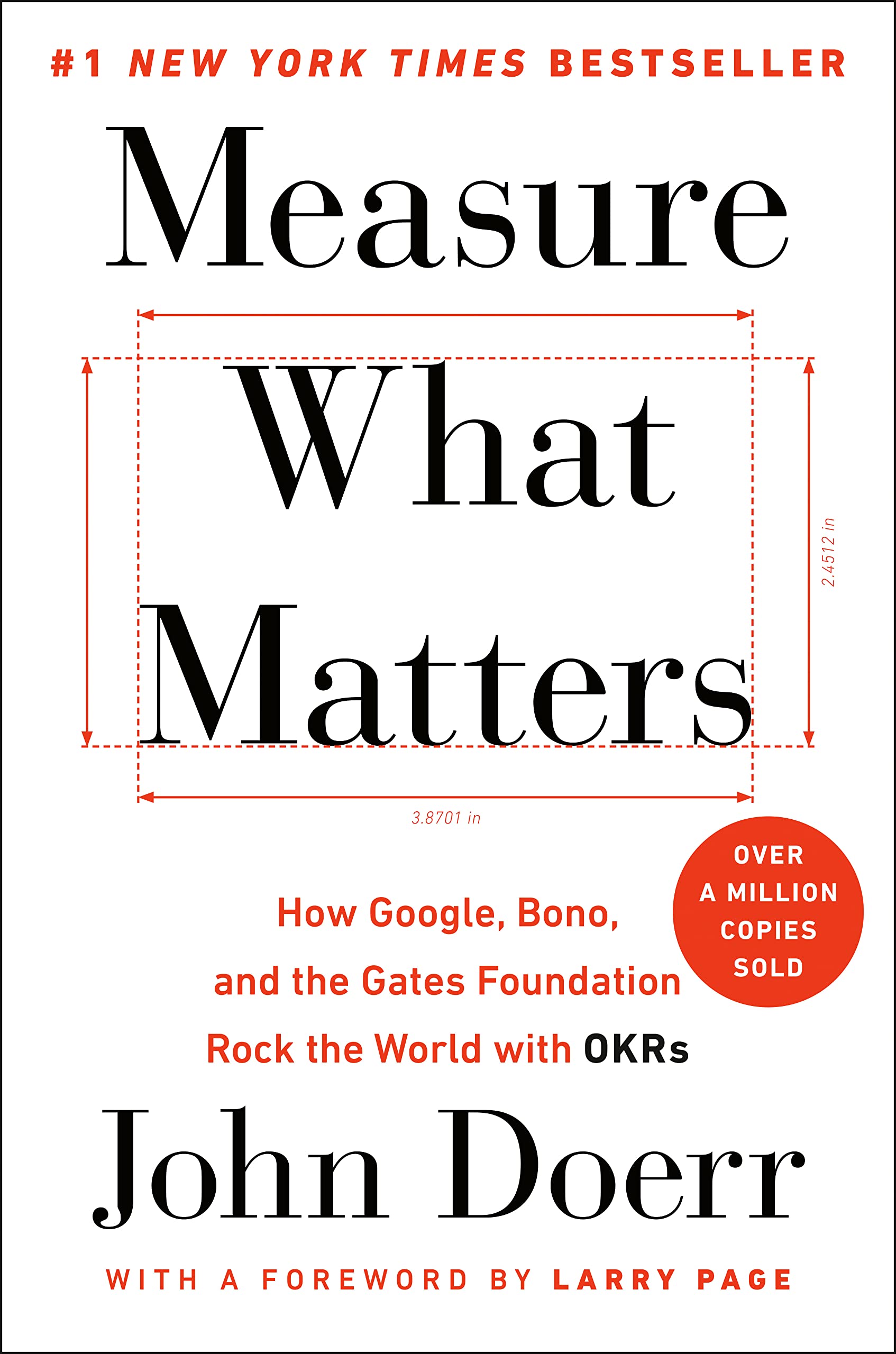Measure What Matters by John Doer

Date Read: August 2021
John Doerr shares his OKR (Objectives and Key Results) methodology he learned from Intel legend Andy Grove. OKRs will help you achieve your business goals, keeps teams aligned, and informs any time you want to do anyting to keep you serving your ultimate objectives. A must read.
My Notes
"OKRs have helped lead us to 10x growth, many times over. They've helped make our crazily bold mission of 'organizing the world's information' perhaps even achievable. They've kept me and the rest of the company on time and on track when it mattered the most." -Larry Page
3 Ingredients:
- An Audacious Objective
- Start by being idealistic, not realistic. If I were freed from constraints, what change would I make? If I could be the best at one thing, what would that be? Then scale the objective back one step short of what's possible
2. Quality and Quantity Key Results
- 3-5 that you can measure
3. Colour Coding Check-ins
- Check-in each week, month or quarter and give colour score
- Green (70-100% on target) --> Continue
- Yellow (30-70% on target) --> Recovery Plan
- Red (0-30% on target) --> Recover or Replace
- If your key results are always green then you've done something wrong - if 100% you've set your sights too low. Need a mix of green and yellow
Operational KR vs Aspirational KRs
Objective
- WHAT is to be achieved, no more and no less
- objectives are significant, concrete, action oriented, and (ideally) inspirational
Key Results
- benchmark and monitor HOW we get to the objective
- More earthbound and metric driven
- Ex. Revenue, growth, active users, satisfaction scores
- specific and time-bound, aggressive yet realistic
- Specific, measurable and verifiable
- “It’s not a key result unless it has a number.”
- You either meet a key result’s requirements or you don’t; there is no gray area, no room for doubt.
- At the end of the designated period, typically a quarter, we declare the key result fulfilled or not. Where an objective can be long-lived, rolled over for a year or longer, key results evolve as the work progresses. Once they are all completed, the objective is necessarily achieved. (And if it isn’t, the OKR was poorly designed in the first place.)
- Force you to specify what an Objective means to you
- Help you identify what really matters
- Needs to be an end, not an means to an end
OKRs surface your primary goals. They channel efforts and coordination. They link diverse operations, lending purpose and unity to the entire organization.
Aren't used for bonuses, nor used for promotions. They have a higher purpose. They are the collective purpose / calling of the entire organization.
Aspirational OKRs / Stretch goals / 10x goals. "I'd rather have my team aim for Mars because even if they fall short, I still know we're going to get to the moon." - Larry Page
Good grade is 70%. If you get 100% done then you're probably sandbagging. Google is the biggest and best company using OKR model.